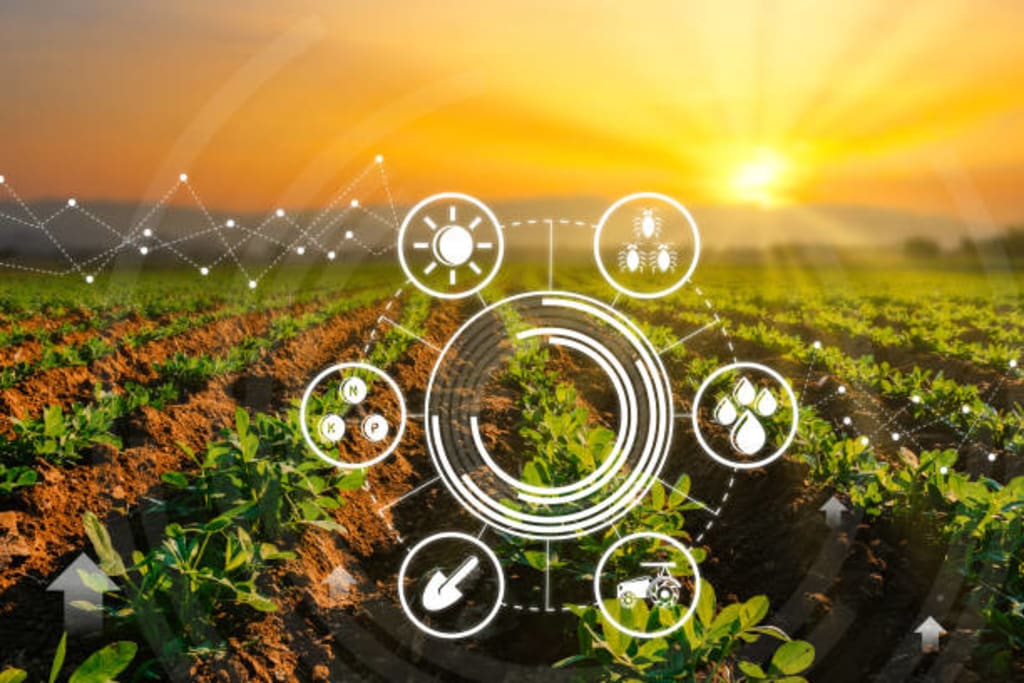
"Harvesting Knowledge: Advancements and Innovations in Agricultural Education and Science"
Introduction:
Agriculture, the backbone of our society, has undergone remarkable transformations in recent years, owing to advancements in education and science. This article explores the exciting developments and innovations at the intersection of agricultural education and science, highlighting their collective impact on the field. From revolutionizing farming techniques to addressing global food security challenges, "Harvesting Knowledge" delves into the dynamic landscape of agricultural education and science.
1. Empowering the Next Generation of Agricultural Professionals:
The article begins by examining the evolving landscape of agricultural education. It explores the shift from traditional classroom-based learning to hands-on experiential education, emphasizing the importance of practical training and fieldwork. Additionally, interdisciplinary curriculum approaches that integrate various scientific disciplines are explored, enabling students to develop a comprehensive understanding of the complex systems and challenges in agriculture.
2. Technology Integration in Agricultural Education:
The article highlights the role of technology in enhancing agricultural education. From the use of drones for precision farming to the integration of data analytics and remote sensing techniques, technology is revolutionizing the way students learn and interact with the agricultural environment. Virtual reality simulations and online learning platforms are also explored as tools to bridge the gap between theory and practice in agricultural education.
3. Scientific Innovations Shaping the Future of Agriculture:
Advancements in agricultural science are driving transformative changes in farming practices. The article explores genetic engineering and biotechnology, discussing how these fields have contributed to the development of genetically modified crops that exhibit enhanced yield, resilience, and nutritional value. It also touches upon innovative pest management techniques and the use of biocontrol agents, reducing reliance on harmful pesticides.
4. Precision Farming and Sustainable Agriculture:
The concept of precision farming is examined, showcasing how technology and data-driven approaches enable farmers to optimize resource utilization and maximize productivity. The article delves into the integration of IoT devices, sensors, and automation in farming practices, resulting in efficient water management, reduced fertilizer use, and minimized environmental impact. Furthermore, sustainable agriculture practices, such as organic farming and agroecology, are discussed for their potential in preserving soil health and biodiversity.
5. Collaborative Partnerships for Agricultural Advancements:
The article emphasizes the significance of collaborative partnerships between academia, industry, and government entities in driving agricultural advancements. It showcases successful initiatives where knowledge exchange and research collaboration have led to practical solutions. Examples include public-private partnerships addressing specific challenges, research institutions working closely with farmers to implement innovative techniques, and government support in funding research and development projects.
Conclusion:
"Harvesting Knowledge: Advancements and Innovations in Agricultural Education and Science" illustrates the transformative power of education and science in shaping the future of agriculture. By empowering the next generation of agricultural professionals, integrating technology into education, and harnessing scientific innovations, we can overcome the challenges of global food security, sustainable resource management, and environmental preservation. The article concludes by emphasizing the ongoing need for collaboration and continued investment in agricultural education and scientific research to ensure a resilient and prosperous agricultural sector.
Summary:
"Harvesting Knowledge: Advancements and Innovations in Agricultural Education and Science" explores the latest developments in the field of agricultural education and science. This summary provides a brief overview of the key points covered in the publication.
The article highlights the importance of agricultural education in addressing global food security challenges and promoting sustainable farming practices. It emphasizes the need for continuous learning and knowledge exchange among farmers, researchers, and policymakers to improve agricultural productivity and mitigate environmental impacts.
Several advancements in agricultural education are discussed, including the integration of technology and digital tools into the learning process. These innovations range from online courses and virtual reality simulations to agricultural apps and precision farming techniques. The article emphasizes that these tools can enhance students' understanding of complex agricultural concepts and provide them with practical skills for modern farming practices.
In addition to educational advancements, the publication explores innovations in agricultural science. It covers various scientific breakthroughs, such as genetic engineering, precision agriculture, and data-driven decision-making. These advancements enable farmers to optimize crop yields, reduce resource inputs, and mitigate the effects of climate change on agriculture.
The article also highlights the importance of interdisciplinary collaborations in agricultural research and education. It emphasizes the need for partnerships between universities, research institutions, and industry stakeholders to address the diverse challenges faced by the agricultural sector. Such collaborations foster innovation and facilitate the translation of scientific discoveries into practical solutions.
Overall, "Harvesting Knowledge" underscores the critical role of agricultural education and science in promoting sustainable farming practices and addressing global food security. By embracing advancements and innovations in these fields, agricultural professionals can equip themselves with the necessary knowledge and tools to overcome challenges and build a more resilient and productive agricultural sector.





Comments
There are no comments for this story
Be the first to respond and start the conversation.